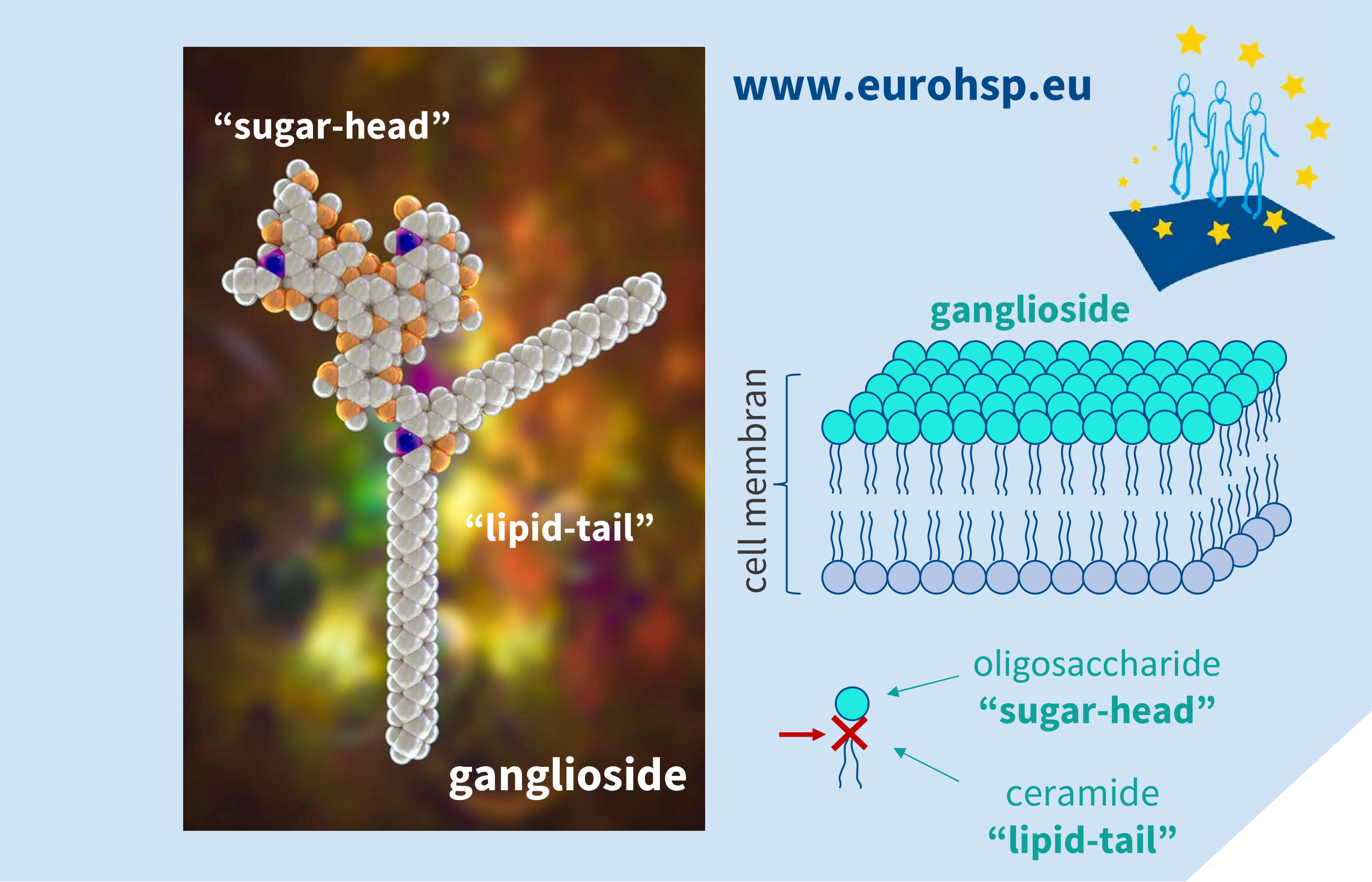In vivo trials on repurposing a compound named Venglustat for SPG11 disease modification take place at the Paris Brain Institute (ICM, Principal Investigator Dr. Frederic Darios). They are designed for investigating long-term treatment and are scheduled for a period of two years. Financial support by Euro-HSP is made in close cooperation with its Dutch partner association Life4HSP providing a central transparent accounting for pan European donators.
Currently it is assumed that at least three subtypes of HSP – SPG11, SPG15 and SPG48 – share a common root cause. Here, nerve cell lack the capability to properly recycle a basic component of their own cell membrane named ganglioside. Thus, gangliosides accumulate in nerve cells leading to progressing neurodegeneration. Recently it was shown in a laboratory model, that Venglustat can delay the disease onset [Fortier et al. Neurobiology of Disease 2024].
Gangliosides form the outer shell of many nerve cells. They are composed from two parts (see figure). A double lipid-tail which makes them anchor in the membrane and a head composed from sugar-rings (oligosaccharid). These sugar-heads display the characteristic outer surface of many neurons. Venglustat reduces the formation of gangliosides by hampering the bounding of those two parts.
For translating such hypothesis into effective cure, a confirmation of the first encouraging results is required on a broader basis. In particular, the drug must be well-tolerated at a sufficiently high dose in a long-term application. Only after confirming a safe and effective drug profile in a laboratory setting, it may be tested in SPG11 and/or SPG15 patients. For the ongoing project, a total budget of nearly 200.000 Euro over two years is required. Thanks to our donators Euro-HSP was able to start the project by a 60.000 Euro up-front payment.
Another important precondition for successful future testing of drugs in SPG11 and related subtypes are biomarkers which allow for objective quantification of treatment attempts. For this purpose, Life4HSP (The Netherlands) and stopp-HSP (Austria) together under the roof of Euro-HSP agreed supporting a trial investigating a novel biomarker marker for SPG11 and SPG15 at Harvard’s Children Hospital in Boston (Prof. Ebrahimi-Fakhari) with another 10.000 Euro. Beyond these new activities also the euroSPG4 project is making progress. Here, we will report by July this year.
We wish to thank our donators and respectfully ask for continuous support. Life4HSP opened a new platform for donations to the euroSPG11/15 project. Alternatively, you can support both ongoing projects (euroSPG4 and euroSPG11/15) selectively via the Euro-HSP donations platform.

